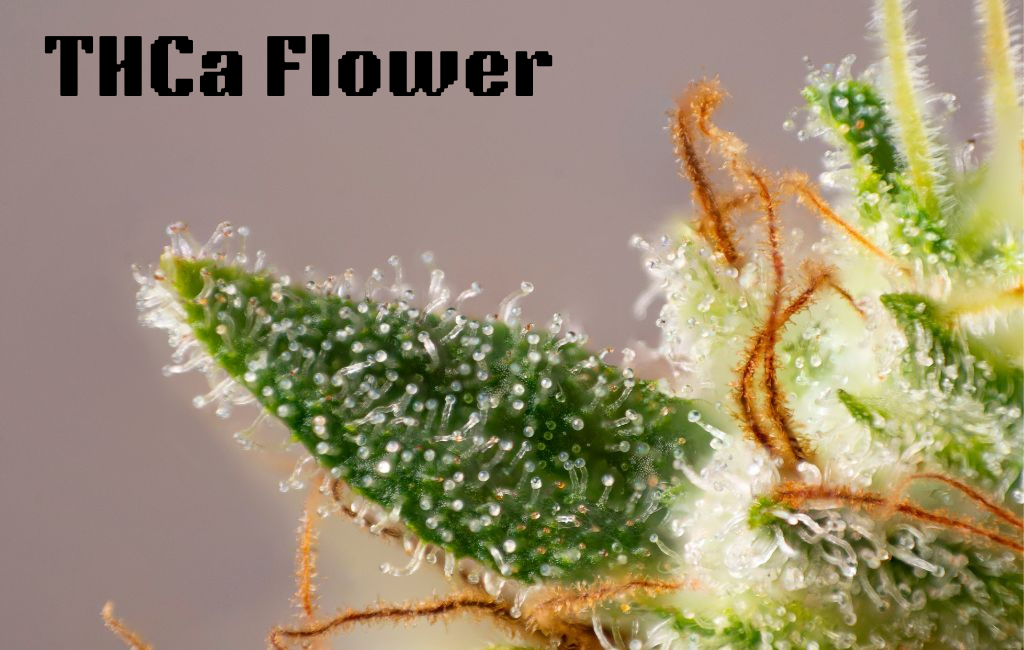
THCa Flower for Recovery
-
Table of Contents
- THCa Flower for Recovery
- Understanding THCa
- How THCa Works
- Benefits of THCa Flower for Recovery
- Case Studies and Research
- Case Study: Arthritis Relief
- Research on Neuroprotection
- Appetite Stimulation in Cancer Patients
- How to Use THCa Flower for Recovery
- Potential Side Effects and Precautions
- Conclusion
THCa Flower for Recovery
In recent years, the use of cannabis for medicinal purposes has gained significant attention. Among the various compounds found in cannabis, THCa (tetrahydrocannabinolic acid) has emerged as a promising option for recovery and wellness. This article explores the potential benefits of THCa flower for recovery, supported by research, examples, and case studies.
Understanding THCa
THCa is a non-psychoactive cannabinoid found in raw and live cannabis plants. Unlike THC (tetrahydrocannabinol), THCa does not produce a “high” when consumed. Instead, it offers a range of therapeutic benefits that can aid in recovery from various conditions.
How THCa Works
THCa interacts with the body’s endocannabinoid system (ECS), which plays a crucial role in maintaining homeostasis. The ECS consists of receptors, enzymes, and endocannabinoids that regulate various physiological processes, including pain, inflammation, and immune response. By interacting with these receptors, THCa can help modulate these processes and promote recovery.
Benefits of THCa Flower for Recovery
THCa flower offers several potential benefits for individuals seeking recovery from various conditions. These benefits include:
- Anti-inflammatory Properties: THCa has been shown to possess anti-inflammatory properties, making it useful for conditions such as arthritis, muscle soreness, and other inflammatory disorders.
- Pain Relief: Research suggests that THCa may help alleviate pain by interacting with pain receptors in the body. This can be particularly beneficial for individuals recovering from injuries or surgeries.
- Neuroprotective Effects: THCa has demonstrated neuroprotective properties, which can aid in the recovery of neurological conditions such as multiple sclerosis and Parkinson’s disease.
- Anti-nausea and Appetite Stimulation: THCa may help reduce nausea and stimulate appetite, making it valuable for individuals undergoing chemotherapy or dealing with eating disorders.
Case Studies and Research
Several case studies and research findings support the potential benefits of THCa flower for recovery. Here are a few notable examples:
Case Study: Arthritis Relief
A study published in the “Journal of Pain Research” examined the effects of THCa on patients with arthritis. The study found that patients who used THCa reported significant reductions in pain and inflammation, leading to improved mobility and quality of life.
Research on Neuroprotection
Research conducted by the “National Institute on Drug Abuse” explored the neuroprotective effects of THCa. The study concluded that THCa could help protect brain cells from damage and promote recovery in conditions such as Alzheimer’s disease and traumatic brain injury.
Appetite Stimulation in Cancer Patients
A clinical trial conducted by the “American Cancer Society” investigated the use of THCa in cancer patients experiencing appetite loss. The trial found that THCa significantly increased appetite and reduced nausea, improving the overall well-being of the patients.
How to Use THCa Flower for Recovery
THCa flower can be consumed in various ways to aid in recovery. Some common methods include:
- Raw Consumption: THCa flower can be consumed raw by adding it to smoothies, salads, or other dishes. This method preserves the non-psychoactive properties of THCa.
- Juicing: Juicing fresh THCa flower is another effective way to consume it. This method allows for easy absorption of THCa and other beneficial compounds.
- Tinctures and Oils: THCa tinctures and oils can be taken sublingually or added to food and beverages. These products offer precise dosing and are convenient for daily use.
- Topicals: THCa-infused topicals, such as creams and balms, can be applied directly to the skin to target localized pain and inflammation.
Potential Side Effects and Precautions
While THCa is generally considered safe, it is important to be aware of potential side effects and take necessary precautions. Some individuals may experience mild side effects such as dry mouth, dizziness, or fatigue. It is advisable to start with a low dose and gradually increase it to find the optimal dosage for your needs.
Consulting with a healthcare professional before using THCa flower for recovery is recommended, especially if you have any underlying medical conditions or are taking other medications.
Conclusion
THCa flower holds significant promise for individuals seeking recovery from various conditions. Its anti-inflammatory, pain-relieving, neuroprotective, and appetite-stimulating properties make it a valuable option for those looking to enhance their well-being. Supported by research and case studies, THCa offers a natural and non-psychoactive alternative for recovery. As always, it is advisable to consult with a healthcare professional before incorporating THCa into your recovery regimen.